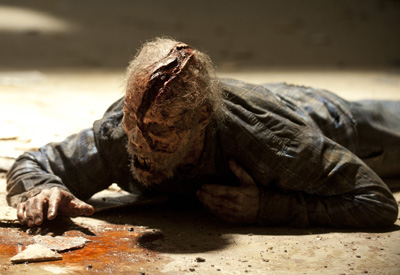by Diana Crandall
As October resurrects the best of fall television, “The Walking Dead” rose with distinction last Sunday on AMC.
With millions tuning in to the 9 p.m. showing and social networks exploding with “Walking Dead” updates, it’s understandable why many on the outside miss the fascination people have with the show.
With a dedicated fan base and millions of online followers, “The Walking Dead” initially attracts viewers with the badass mantra that comes with splitting open the skulls of the undead. Yet once it has fans in its grasp, it clutches hearts and eats them alive.
While “American Horror Story” may offer an intellectual thrill, it fails to cultivate a relationship between its main characters and its viewers; “Dead” fans feel pain in the loss of members of Rick’s group with profound empathy and revolting heartbreak.
We love “Dead” because it explores the quiet components of our humanity, so often cloaked with material artifacts and superficial disquiet. Critics of “Dead” argue that a linear plot and slow-moving seasons drag down the show and leaves the audience disinterested and bored.
This denunciation is eradicated by the fact that we love, follow, and grieve with people that exist only on a television screen.
While “Horror Story” continues to recycle its cast and place them in different arenas as the seasons pass, fans of “Dead” continue to come home to Rick’s – our – group, whether they live on a farm, on the road, or in a prison.
We love “Dead” because we love people, but, mostly, because we have a deep, primal attraction to feigning off zombies in a mass apocalypse. Remember: if Daryl dies, we riot.
dcrandall@capitaledu

